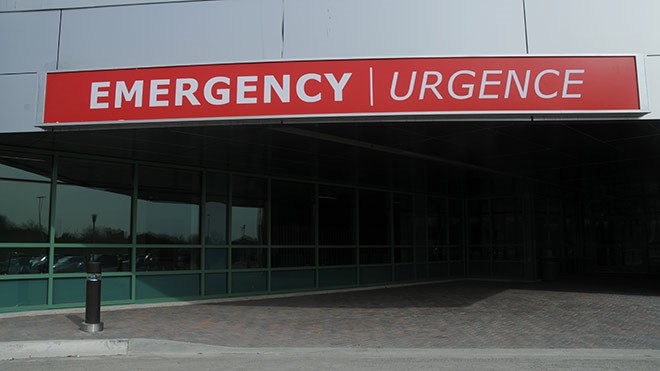With concerns around Ebola on the rise in Ontario, and across Canada, Health Sciences North's chief nursing officer and vice-president of clinical programs, David McNeil, says the hospital exceeds provincial guidelines for recommendations around personal protective equipment.
“We're not taking this lightly,” McNeil said. “Ebola is a very serious illness.”
In a press conference Friday morning Ontario Health Minister Eric Hoskins named Health Sciences North as one of 10 hospitals in the province that would treat confirmed Ebola cases.
Health Sciences North was the only hospital in Northern Ontario to make the cut.
Earlier in the week, the Canadian Federation of Nurses Unions said five Ebola false alarms at Ontario hospitals have shown a failure in the “Ebola readiness test.”
The federation said hospital workers were not trained or tested to recognize Ebola, did not have the equipment they needed to deal with the disease, and had inadequate procedures in place.
McNeil said the federation's concerns are fair, but said staff at Health Sciences North are well trained to care for patients with infectious diseases like Ebola.
To respond to concerns around Ebola, McNeil said the hospital has added a couple of new screening questions for new patients.
“Have you travelled outside of North America in the last 21 days?” he said.
If a patient answers yes to that question they are immediately referred to triage, where they are asked more direct screening questions to determine if they should be isolated, McNeil said.
He said the severe acute respiratory syndrome (SARS) outbreak from 2002 to 2004 was a wakeup call for Ontario hospitals.
“We became almost over-confident in modern medicine that we could somehow overcome infectious diseases when the reality was they were always there, and they were probably laying dormant,” he said.
The precautionary principle, where hospital staff assume any new patient could be infectious, came out of a series of recommendations after the SARS outbreak.
“We are confident that Ontario is prepared and ready to contain and treat any potential case of Ebola virus in our province — protocols are in place and we’ve seen the system work well in Ontario hospitals,” said Hoskins, and Dr. David Mowat, the province's chief medical officer of health, in a joint statement.
Lisa Schell, manager of clinical services with the Sudbury and District Health Unit, said the health unit follows those protocols and would play a co-ordinated role with the hospital in case of an outbreak.
While Health Sciences North would be responsible for direct patient care, the health unit would help with public outreach and education.
More than 8,900 people have been infected with Ebola this year, and more than 4,400 have died, mostly in Guinea, Liberia and Sierra Leone.
Join Sudbury.com+
- Messages
- Post a Listing
- Your Listings
- Your Profile
- Your Subscriptions
- Your Likes
- Your Business
- Support Local News
- Payment History
Sudbury.com+ members
Already a +member?
Not a +member?
Sign up for a Sudbury.com+ account for instant access to upcoming contests, local offers, auctions and so much more.
